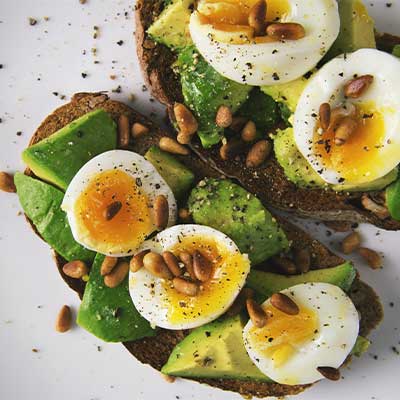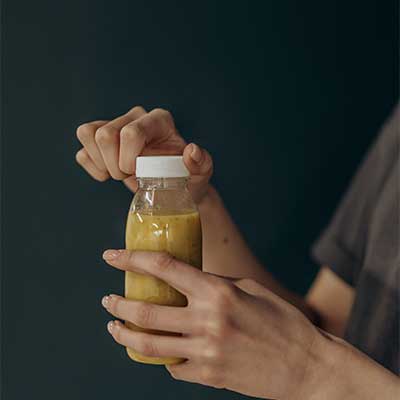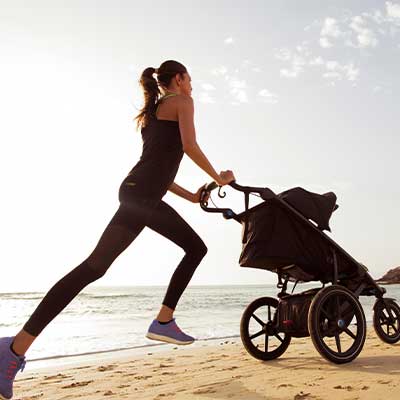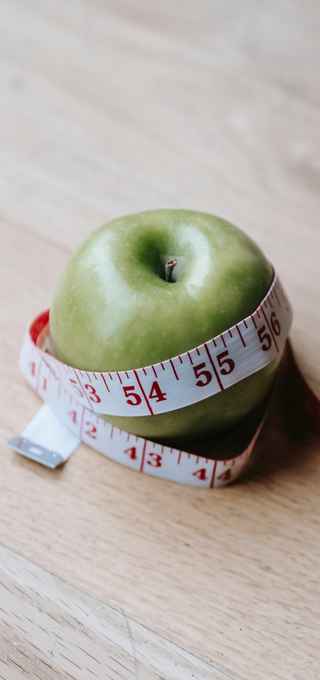Last Updated on March 28, 2025
Having a baby and becoming a mother are some of the most amazing experiences that life can afford. However, many changes happen to the body during pregnancy; one of those is gaining weight. Starting a postpartum diet can be a great option for new mums who want to lose weight healthily.
Gaining a healthy amount of weight is important for keeping you and your baby healthy during pregnancy. Many factors can influence your weight gain, including your pre-pregnancy weight, whether or not you’re carrying twins, muscle mass, physical activity levels, morning sickness, and general eating habits. You can learn more about healthy eating during pregnancy. I discuss healthy eating during pregnancy in one of my past articles.
The average “healthy” weight gain is about 11.5–16 kg (or 25–35 lbs.) during pregnancy. While it may sound like a lot, this weight consists of your baby, the placenta, amniotic fluid, blood, breast tissue, the enlargement of your uterus, and extra fat stores. After that, depending on the size of your newborn and the weight of your amniotic fluid and placenta (which you deliver at birth), pregnant women can lose up to 6 kg (around 13-14 lbs.) during delivery.
Finally, after your baby is born, it is important to take care of yourself and eat nutritious foods (for your sake and your baby’s). And if you want to lose some of that weight gained after having your baby, here are nine healthy tips to help with your postpartum diet.
9 Healthy Postpartum Diet Tips
Tip #1: Don’t fad diet

Losing weight after your baby is born needs to be done healthily and safely. Doing fad diets can pose health risks to both you and your baby. Many fad diets promote the exclusion of important food groups. This can result in not meeting the nutritional requirements for you and your baby. Fad diets also promote rapid weight loss, which can adversely affect your breast milk supply. Some fad diets also use diet pills or other supplements that can be harmful to both you and your baby.
Tip #2: Eat a variety of plant foods
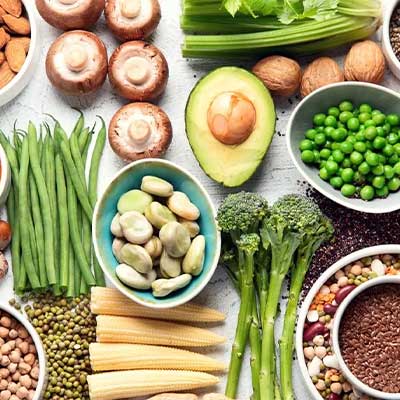
Eating a balanced diet rich in vegetables, fruits, whole grains, nuts, and seeds can help with healthy weight loss after birth. Plant foods are especially rich in fiber. One important type of fiber found in plant foods is called soluble fiber. This type of fiber dissolves in water and slows down digestion, helping to control your blood sugar levels and making you feel fuller. Soluble fiber may also help with regulating appetite hormones. Therefore, eating plant foods rich in soluble fiber can aid a healthy postpartum diet.
Plant foods also contain a kind of fiber called insoluble fiber. This fiber adds bulk to your stools and helps to keep your bowels regular. Postpartum constipation can be a problem for many women, so including plant foods in your postpartum diet can help.
If you want to start eating more plant foods, check out my 8 really easy recipes to start following a plant-based diet. You can also download a free copy of The Beginner’s Guide to Losing Weight with a Plant-Based Diet.
Tip #3: Breastfeed if you can

Besides providing essential nutrients for your baby’s growth, immune protection, and gastrointestinal benefits, breastfeeding can also help with your postpartum diet weight loss. Breastfeeding triggers your uterus to shrink back to pre-pregnancy size through the release of the hormone oxytocin. Studies have also found breastfeeding helps with postpartum weight loss, as milk production burns about 300 to 500 calories a day. So if you can breastfeed your baby, this can help you achieve your healthy postpartum diet goals.
Tip #4: Include protein
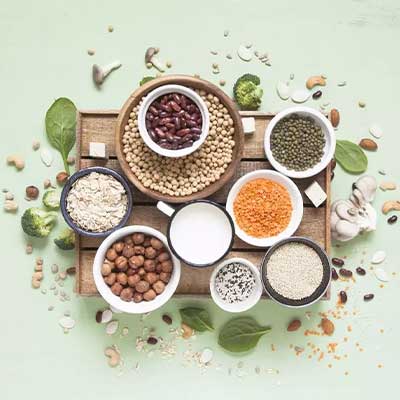
Protein can help support weight loss and your postpartum diet by reducing your appetite, increasing feelings of fullness, and boosting your metabolism. Consuming enough protein along with appropriate training can help with gaining muscle back post-pregnancy.
You can choose to consume protein from animal or plant sources or a combination of both. Choosing plant protein sources for your postpartum diet can help with weight loss, as plant protein foods also contain fiber, which helps you feel full. Some good sources of plant protein include tempeh, tofu, lentils, beans, hemp seeds, edamame, and soy milk.
It is best to spread these sources of plant protein throughout your day to help with your postpartum diet. This means consuming some at breakfast, lunch, dinner, and between meals with your snacks. Here’s how you can spread these plant protein foods throughout your day.
Tip #5: Have healthy snacks ready
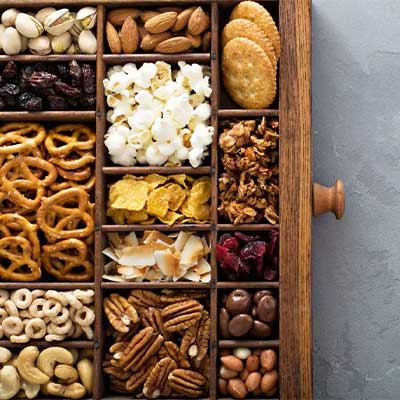
Life with a newborn can be extremely busy. From feeding, changing nappies, burping, and dressing, there isn’t much time left for cooking in the kitchen. Keep some healthy snacks on hand that you can eat while breastfeeding and on the go, as those that require little or no preparation can still help with your healthy postpartum diet. Some quick, easy, nutritious snacks include fruit, vegetable sticks and dip, nuts, a glass of soy milk, a tin of chickpeas, yogurt/yogurt, trail mix, boiled eggs, and wholegrain crackers. Remember to keep these visible and easily accessible at home, not tucked away at the back of the fridge or pantry. Check out this article for more easy and healthy snack ideas.
Tip #6: Drink water

Drinking enough water and staying hydrated can help with your postpartum diet. If you are dehydrated, your body can register a hunger sensation instead of thirst, so staying hydrated can help with your weight loss efforts. Remember, when you are breastfeeding, you need extra water, so aim for at least 8-10 cups of water per day. Even try keeping a few bottles of water around the house or at the locations where you breastfeed.
Tip #7: Skip the highly processed foods
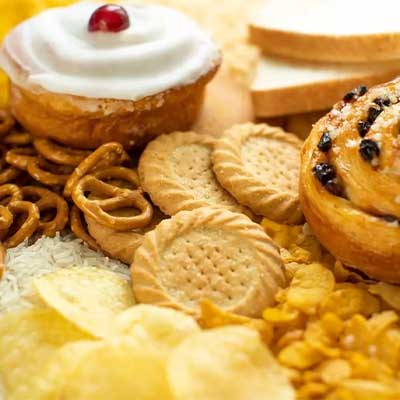
Foods high in added sugars, refined carbohydrates, and saturated fats are high in calories and have little nutritional benefit. Limiting or avoiding these foods will help with your postpartum diet. Nourishing your body with enough real healthy foods and not excluding any nutritious foods or food groups, like fruit or carbohydrates, will help you limit your intake of processed foods. If you do struggle with sugar cravings, here are five practical ways to stop them.
Tip #8: Ask for help

They say that it “takes a village to raise a child”, and this couldn’t be anything further from the truth. Looking after your baby and yourself can be very stressful and busy, so it’s important to ask for help and accept help when it’s offered. Asking for help with food shopping and cooking meals can help you significantly with your postpartum diet. You can also ask for help with babysitting so you can prepare and cook your healthy meals and start exercising again.
Tip #9: Get your body moving
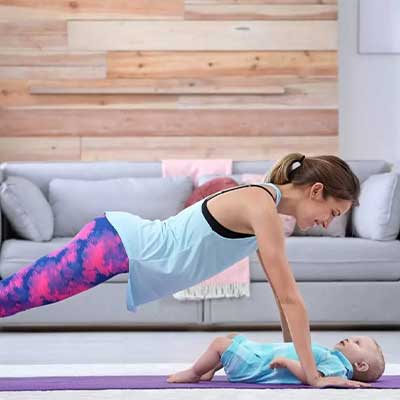
Exercise after pregnancy will help with your postpartum diet weight loss as well as boost your mood and energy levels. It’s important to always seek medical advice from your obstetrician, midwife, physiotherapist, or doctor before returning to exercise after birth.
Walking is a great way to re-commence exercise, as it can be done with the baby in the stroller or carrier and with family or friends. Also, weighted exercise is excellent for boosting your metabolism, which helps with both weight loss and toning. Just to make things easy, here are twelve simple exercises to help get you back in shape.
Finally, if you are struggling to find time to fit in exercise with your busy mum/mom life, remember that breaking your exercise up into smaller time blocks can be just as effective. You could try doing two twenty-minute blocks or even four ten-minute blocks; it all adds up!
Conclusion
As a new mum or “mom” myself, I know how challenging life can be with a newborn. I hope these healthy tips can help you in your postpartum journey. Remember, choose the ones that will work best for you and your lifestyle. Your body has been incredible for growing a beautiful baby, so be kind to it.
Top 10 Best Snacks for Weight Loss and Energy Gain
Eating balanced snacks between meals…
Weight Loss Detox Demystified: Do Detox Drinks Really Work?
With the holiday season still…
9 Healthy Postpartum Diet Tips for Post-Pregnancy Weight Loss
Having a baby and becoming…
How to Achieve a Plant Based Diet Weight Loss 2024
Trying to get in shape,…
- How to Achieve a Plant Based Diet Weight Loss 2024
- 9 Healthy Postpartum Diet Tips for Post-Pregnancy Weight Loss
- 6 Tips On How to Lose Weight While Still Drinking Alcohol
- Top 10 Best Snacks for Weight Loss and Energy Gain
What is the best diet after giving birth?
In order to maintain their health and produce good breast milk, nursing women require an additional 500 calories per day in addition to enough protein, calcium, and water. Eat a variety of fresh fruits and vegetables, lean meats, high-fiber foods, low-fat dairy products, and other healthy foods as part of an overall balanced diet.
What mother should not eat after delivery?
Avoid foods and drinks that enhance bloating and gas production, such as carbonated beverages, citrus juices, coffee, tea, and spicy foods. Heartburn and indigestion can be brought on by fried and fermented meals. Given that mom’s nurse, such meals may have an impact on the milk and contribute to baby growth issues.
Which fruit increase breast milk?
Apricots and dates
Prolactin is the hormone that instructs your body to produce milk, and eating apricots and dates might raise prolactin levels. Dietary fiber, vitamin A, vitamin C, and potassium are just a few of the key components found in apricots. Fresh is preferable to canned.
- Rebecca Gawthornehttps://successiblelife.com/author/rebecca-gawthorne-dietitian-nutritionist/
- Rebecca Gawthornehttps://successiblelife.com/author/rebecca-gawthorne-dietitian-nutritionist/
- Rebecca Gawthornehttps://successiblelife.com/author/rebecca-gawthorne-dietitian-nutritionist/
- Rebecca Gawthornehttps://successiblelife.com/author/rebecca-gawthorne-dietitian-nutritionist/

